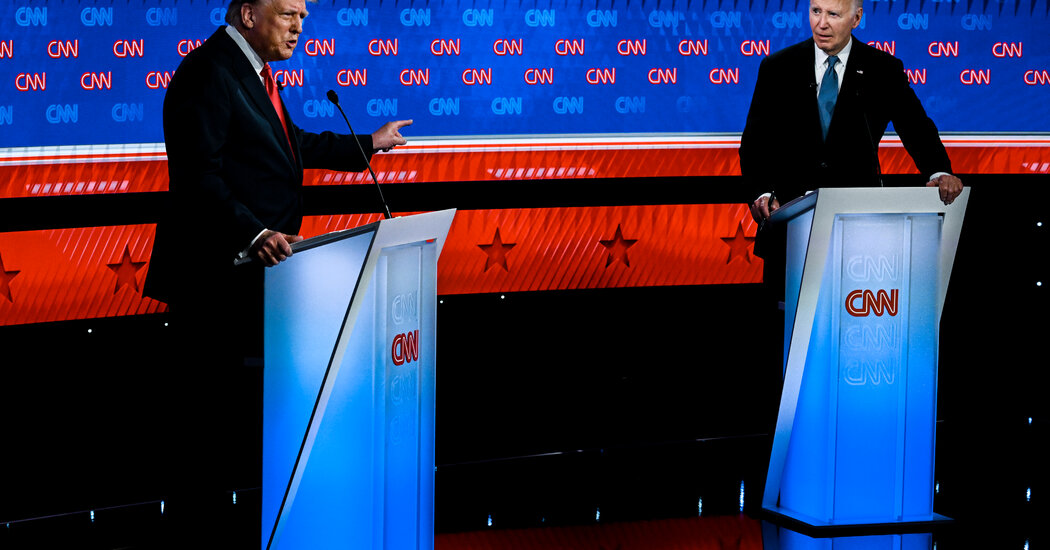Biden? Trump? The Politics of Talking About It at the Office.

Offices across the nation — and Slack channels, the modern water cooler — were abuzz Friday morning with voluble opinions about the presidential debate from the night before. How bad was Biden’s performance? Should Biden step aside? Who should replace him? Can that even happen? Are voters more focused on performance than substance? How many times did Trump lie? Did Biden lie, too?
For most chief executives, presidential elections are a nightmare — they create division inside teams, take up valuable time and can turn into a big distraction.
Kim Scott, a former Google executive and the author of “Radical Candor,” described the sentiment of human resources executives who were at a recent gathering: “They are dreading this election because it’s going to kill productivity for months.”
So what’s the solution? The C-suite may want to just hit the off button. But that may be easier said than done.
Around the time of the 2020 election, a couple of small companies, Coinbase and Basecamp, made big news when they introduced policies that banned political conversations at work, prompting dozens of employees resign. But much bigger firms have since introduced similar policies without inciting the same mass departure or public backlash.
In 2022, Meta asked employees not to discuss the Supreme Court ruling on the constitutional right to abortion, and shortly after that added other topics, including elections. Google’s chief executive, Sundar Pichai, followed protests by employees over the company’s cloud computing contract with the Israeli government with an announcement that noted, “This is a business, and not a place to act in a way that disrupts co-workers or makes them feel unsafe, to attempt to use the company as a personal platform or to fight over disruptive issues or debate politics.”
